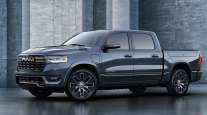New Programs, Resources Emerge to Help Communities Plan for EVs

[Stay on top of transportation news: Get TTNews in your inbox.]
The accelerated and extensive build-out of electric vehicle charging infrastructure is prompting fresh conversations about their placement and the need for city-level resources.
Forth, an Oregon-based electric vehicle research and advocacy group, has partnered with General Motors to develop “grant templates” to help organizations get access to the competitive grant money from federal or state sources later this year and early next year. The templates are being provided free of charge.
“You can go to the website, download a template, and you have what is essentially an 80 percent, quote-unquote, of a complete grant,” said Geoff Gibson, senior program manager and leader of the access to charging team at Forth.
“It should help you get access to some of this money,” said Gibson, in some of his comments on a panel in November to discuss EV charging. The webinar was organized by Forth. “Having this tool will really help enable those communities get over a really big hump in that first sort of effort to get access to this money.”
Meet the truck-driver-turned-writer whose book is helping thousands of everyday people lead with positivity. Then, hear from the philanthropist whose truck-driver-focused charity seeks to ensure that drivers who need help, get it. Tune in above or by going to RoadSigns.ttnews.com.
In addition, Forth is developing an online learning portal for communities without a great depth of charging infrastructure knowledge. “They don’t know sort of the nuts and bolts of what it takes to have charging infrastructure, build it out, and more critically, they don’t really understand what it means to have a good charging program or charging infrastructure that’s really going to help their communities,” said Gibson.
The learning portal is expected to go live early next year, and will be free for cities, states, counties and metropolitan planning organizations, as well as community-based organizations.
“However, we have a very limited number of licenses available ... and the licenses are good for two months,” said Gibson. The program will be initially available for one year, but could be extended.
The development and adoption of EVs and the infrastructure they will need is hitting a stride never before seen. The federal infrastructure program will invest billions of dollars into building out a national EV charging network in the next four years. Meanwhile, the program is making some $2.5 billion available for community efforts to expand charging in areas like multifamily housing and other locations seen as essential to ensure the equitable deployment of not only the charging technology, but the cars themselves.

A BYD e6 electric vehicle on display being charged at a charging portal at the Vantage Automotive Limited showroom in Singapore. (Ore Huiying/Bloomberg News)
“There’s a lot of energy kind of pulling us in the same direction right now, to build out a national EV charging network, and make sure those benefits flow to all Americans, equitably,” said Steve Lommele, interim communications and stakeholder engagement lead at the Joint Office of Energy and Transportation, speaking on the panel. “People have been working on EV charging for a long time, but this is the first time where we’ve got all 50 states — plus Puerto Rico and the District of Columbia — working on a major program at the same time.”
The equitable deployment of charging infrastructure needs to also include rural areas, experts say, and that means putting the chargers in locations that make sense for those residents.
“I think it’s really easy to for publicly accessible charging, and DC fast-charging stations to be prioritized at trailheads, for example,” Gibson pointed out, noting that this sort of placement doesn’t really serve the surrounding community.
“If charging infrastructure isn’t being prioritized for [rural communities], they aren’t really going to see the value in it,” said Gibson.
Want more news? Listen to today's daily briefing below or go here for more info:
Distributed by Tribune Content Agency, LLC





